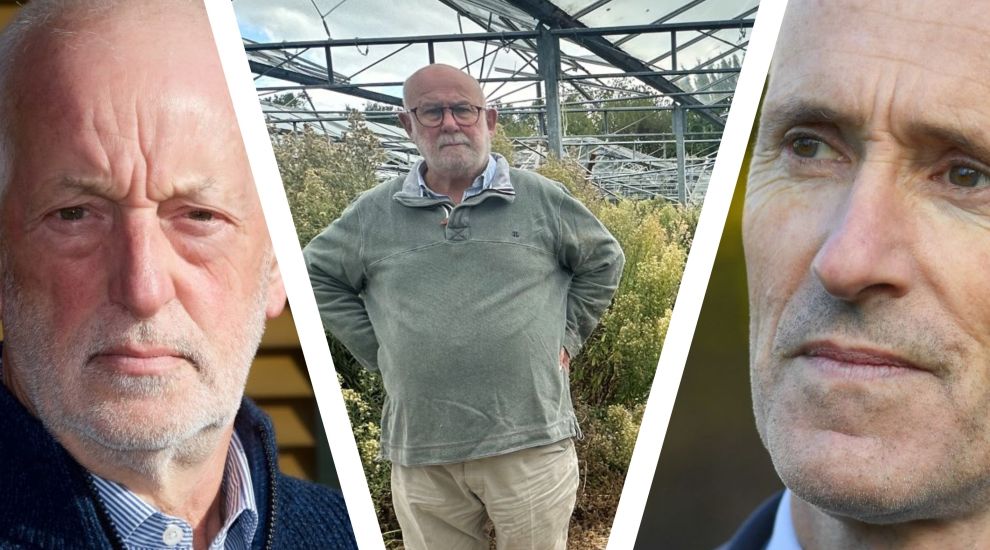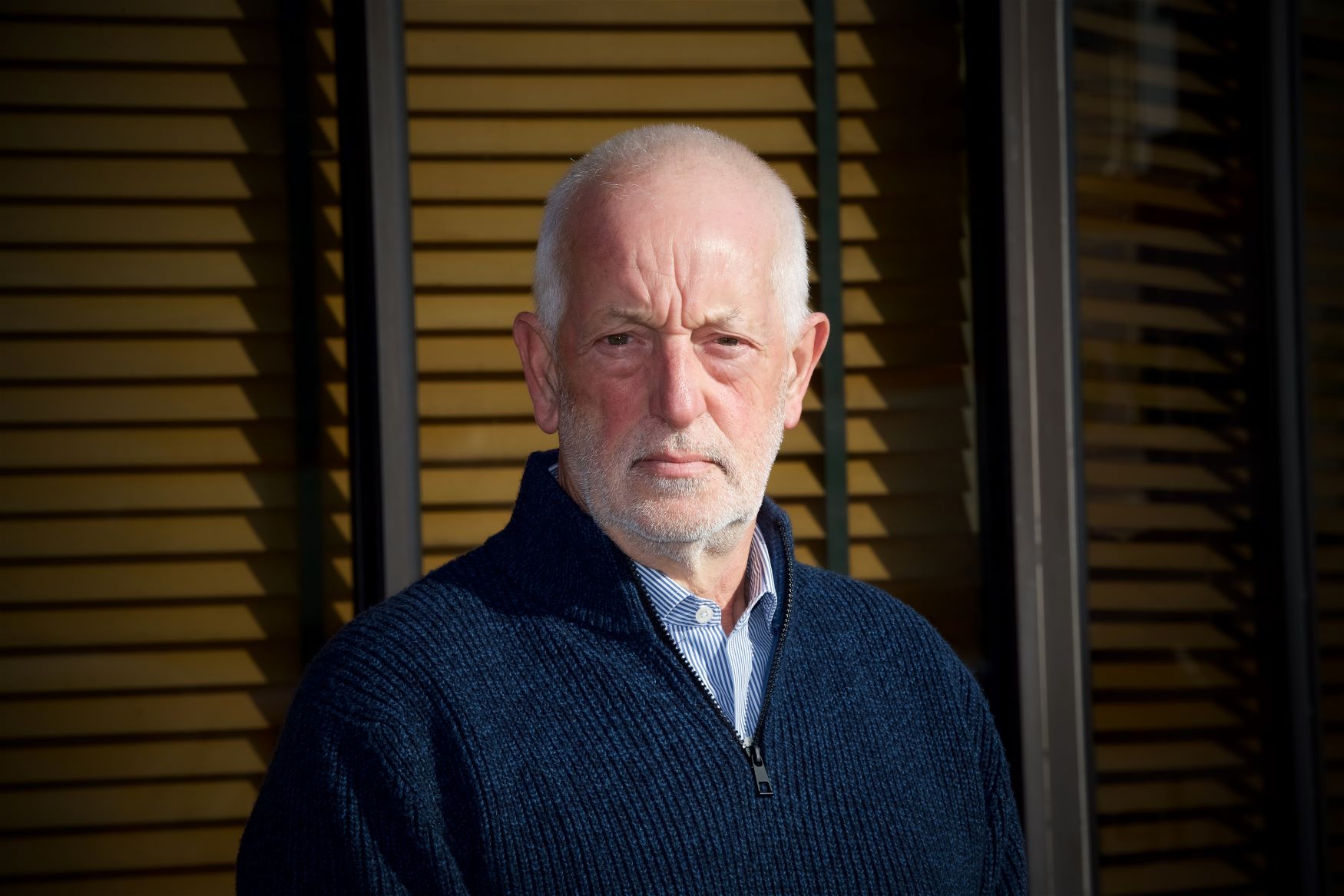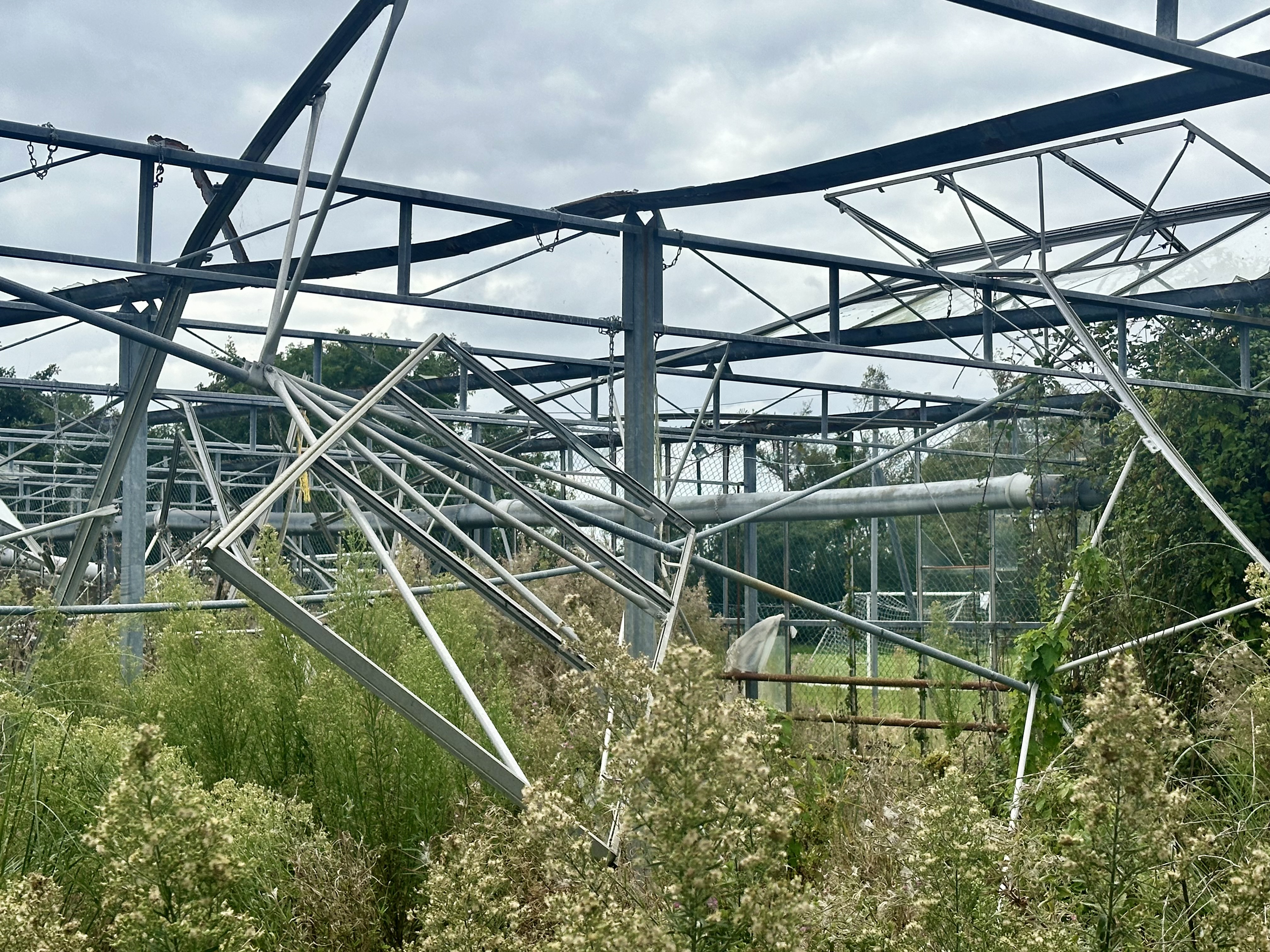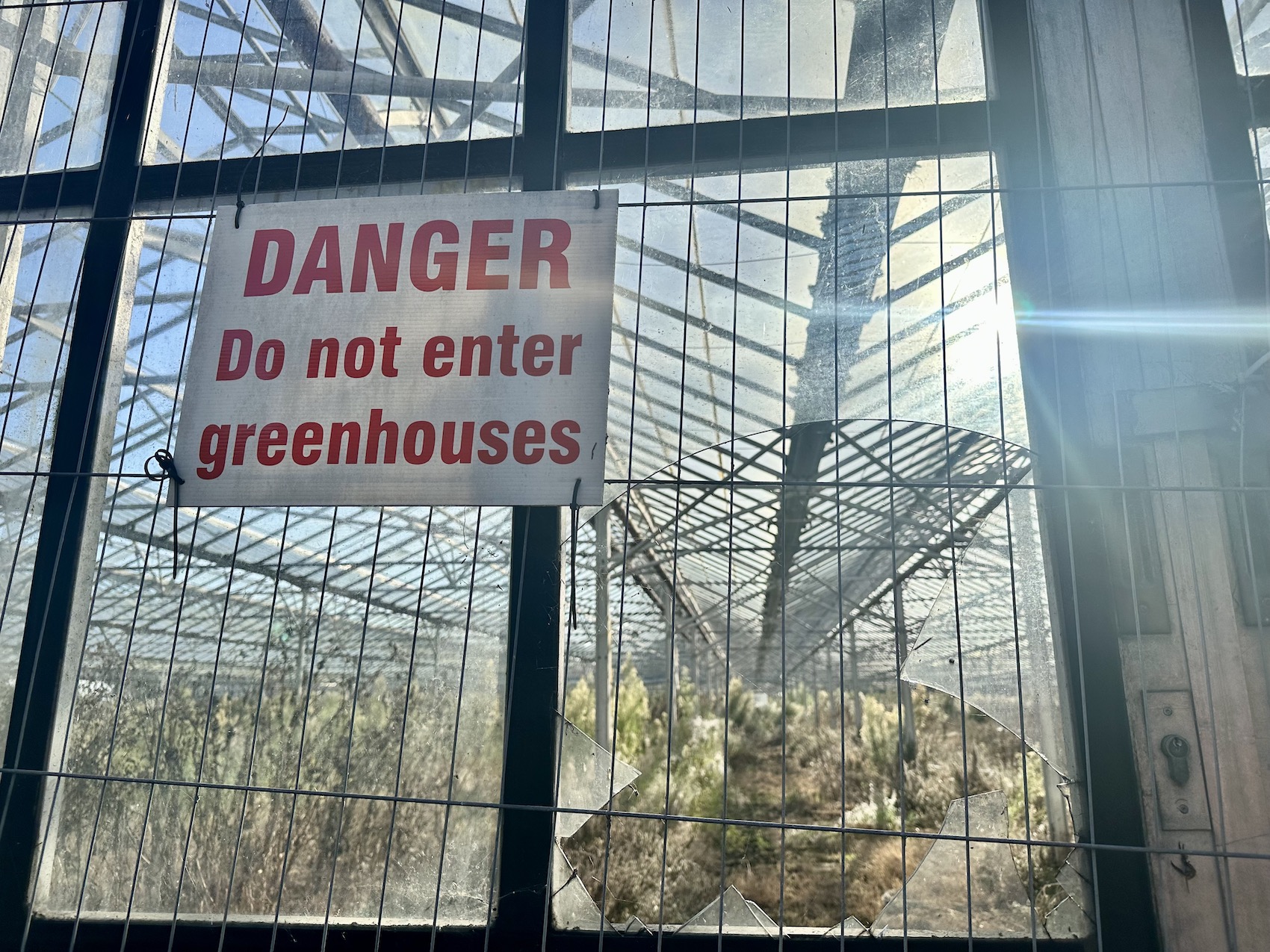


A former Environment Minister has called for an audit of all glasshouse sites in the island to establish which could be used for development, warning that the matter "will be an issue" when the next Island Plan is considered.
Deputy Jonathan Renouf's comments came after a former tomato farmer hit back at the current Environment Minister’s stance on derelict glasshouses.
Kevin Hervé, who operated Les Tours Farm in St Clement for decades, said that planning guidance had left his family stuck in a “catch-22 situation where the Government presents no solutions”.
He urged the Government to ease the rules around developing glasshouse sites.

Pictured: Environment Minister Steve Luce said the supplementary planning guidance "offers more detail" for the owners of derelict glasshouse sites.
The Government recently clarified rules for the redevelopment of these sites, which followed a consultation earlier this year that indicated support for allowing some to be used differently.
Environment Minister Steve Luce said: "The supplementary planning guidance offers more detail for the owners of derelict glasshouse sites to establish what options may be available to them, but it cannot change the policy as detailed in the Island Plan."
The Island Plan is a document that sets out ongoing planning guidance that aims to promote the sustainable development of land while also protecting Jersey's environment.
The Minister continued: "It was therefore never the intention for the SPG to allow for the turning of derelict glasshouses into housing sites overnight.
"However, it continues to be the case that in certain circumstances a proposal could be made to allow some development in exchange for major environmental gains for islanders."
Deputy Jonathan Renouf, who was Environment Minister under the previous government, said the island needed a way to categorise glasshouse sites.
Deputy Renouf continued: "When I was Minister I proposed (to my ministerial colleagues) an audit of glasshouse sites that would examine all redundant sites to establish such matters as: their planning history, suitability for other agricultural uses (for example, medicinal cannabis), proximity to services (mains water, electricity, telecoms, sewage) and transport and relationship to existing settlements.
"This would have helped establish which sites would be most appropriate for development."
Pictured: Former Environment Minister Jonathan Renouf suggested an audit of redundant glasshouse sites could help resolve the issue.
Deputy Renouf added: "Dealing with redundant glasshouses will be an issue for the next Island Plan to resolve.
"It makes sense to prepare for that plan by initiating an audit of all glasshouse sites in the island so that properly informed decisions can be taken when the next plan comes forward."
Mr Hervé's farm, which once supplied tomatoes to major UK supermarkets, ceased operations in 2008 due to increased competition from larger European producers that led to the collapse of the local industry.
Since then, the glasshouses at Les Tours Farm have fallen into disrepair, with the scale of the damage being worsened by Storm Ciarán.
Despite spending hundreds of thousands of pounds on site maintenance and planning applications over the past 24 years, the Hervé family's proposals have repeatedly been rejected — leaving them with mounting debts and an uncertain future.
"The Island Plan policy itself needs to change," Mr Hervé said. "Without this revision, site owners like us remain stuck in a cycle of failed planning applications and rising debt, with no viable path forward."

Pictured: Mr Hervé's farm, which once supplied tomatoes to major UK supermarkets, ceased operations in 2008.
Mr Hervé argues that the Government's publication of Supplementary Planning Guidance for glasshouse sites falls short of addressing the core issues.
"While the SPG suggests that some development may be allowed in exchange for environmental gains, it offers absolutely no reassurance with the planning department for growers who face prohibitive cost in clearing these sites," he said.
"Les Tours Farm is a prime example. Returning the redundant site to soil would cost over a million pounds – an insurmountable figure for any individual or family without assistance who have already invested significant funds to address the issue unsuccessfully.
"Our industry was left behind, with glasshouses turning into derelict dangerous sites instead of being assets to the island, and we continue in a catch-22 situation where the Government presents no solutions."
He described the structures as a "real safety risk" and an "hazardous eyesore" and called on "ministers and politicians to come and speak to us, with the view to reassess policy and to develop practical solutions."
"If a child falls through that greenhouse and gets badly injured or even worse, who's responsible?" he asked.
"I don't want anybody injured, and they [the greenhouses] are dangerous."

Pictured: "Our industry was left behind, with glasshouses turning into derelict dangerous sites"
Gary Tumelty of St Clement's Football Club, which is adjacent to the greenhouse site, reiterated that these structures are "very dangerous".
He added: "The greenhouses have been redundant for some time and during the storm last year, they were severely damaged and glass is quite prevalent across the site.
"Very often footballs go into that area and given that we are a sports club with around 300 to 400 playing members, of which around 300 are children.
"It would be far better if the site was turned back to a green field which can only happen if the owner is able to do some modest development to fund the destruction of these greenhouses."
Simon Cousins, director of agricultural engineering business Agrico – which is based at Les Tours – described the issue as a "very emotive subject".
Mr Cousins, who is Mr Hervé's son-in-law, said he had been involved with the family's planning saga for the past decade.
"The assumption is that farmers made their money in the boom years and want to cash in again," he said. "But this is the exception, not the rule."
Mr Cousins made a comparison between the decline of the agricultural sectors and the tourism sectors over the past four decades.
"Look how many hotels have been knocked down," he said.
"These structures have been through the boom years but are no longer viable, similar to farming. But no one is concerned about hoteliers cashing in.
"No one wants to build over green fields. But we need to provide affordable houses that aren't flats to families. If we don't, then people will vote with their feet by leaving the island.
"There should be a sensible outcome to allow a modest development on part of the land to allow the rest of the glass to be cleaned up and return part of the site to green fields."
Mr Cousins said that his father-in-law had spent hundreds of thousands on removing infrastructure.
He explained: "The site in the 1970s and 1970s was more akin to a production facility with chemical stores, lots of concrete, etc.
"So when his business went down, he spent a huge amount of time and money removing everything that could be polluting such as boilers, chemical stores and chimneys."
Ex-farmer slams greenhouse development rules amid "planning nonsense"
Comments
Comments on this story express the views of the commentator only, not Bailiwick Publishing. We are unable to guarantee the accuracy of any of those comments.